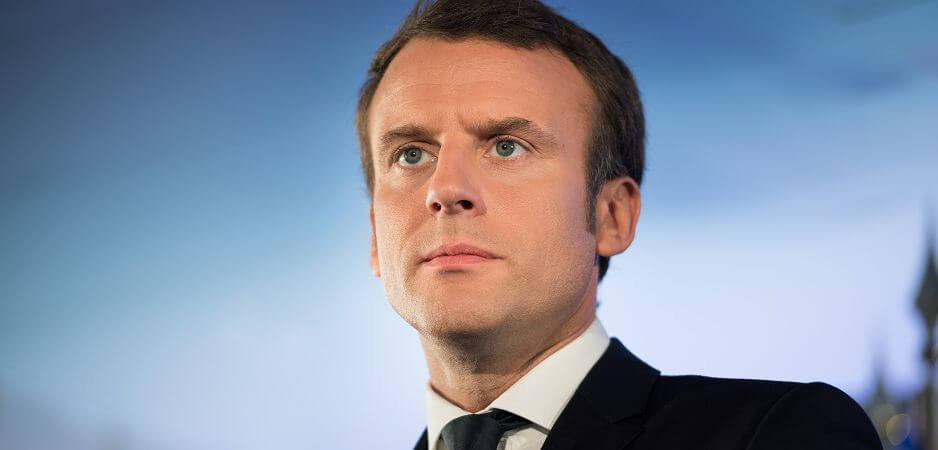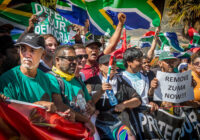When it pays for a French president in Africa to be more frank than franc.
In July, France’s newly minted president, Emmanuel Macron, when reflecting on the economic challenges Africa was facing, employed the word “civilizational.” This immediately raised a few eyebrows, reminding some of Nicolas Sarkozy’s dogmatic pretension exactly a decade ago in a speech he gave in Dakar, where he claimed that Africans had “never sufficiently entered the stream of history.” Which is a nice way of saying, “Come on guys, make an effort. You can eventually catch up with and play on our pitch. Pick up your legs and run a little faster” … as the presidential train pulled out of the station, gathering speed.
Aware of his mistake, Macron has changed the tenor of his discourse since July. Or has he? And what exactly did he mean back then by Africa’s “civilizational” challenge?
Here is today’s 3D definition:
Civilizational:
Adj., a term used by certain groups of people to evaluate the degree to which other people in other places (and of other races) conform with their own inspired idea and ideal of enlightenment, good manners, acceptable beliefs and economic organization.
Contextual note
In an article in Quartz Africa, Siddhartha Mitter analyzes the French president’s discourse in July. “Macron’s remarks fall into a tradition … of grandiloquent and condescending statements about Africa that point to every cause of the continent’s difficulties other than colonialism and its enduring trace.”
In Burkina Faso this week, Macron, while pushing an agenda of reform and a break with the past, reaffirmed — perhaps unconsciously — the same vision of African history. Summing up colonial history, he declared: “There were combats, there were mistakes and crimes, great things happened and there were stories with happy endings.”
This looks like his way of subtly implying that the bad things were isolated incidents, caused by people with bad intentions. The good things were “great” accomplishments with “happy” ends, the result of collective will. In other words, colonization by people who believed themselves civilized, as opposed to the savages they colonized, wasn’t that bad after all.
Historical note
Wikipedia reminds us that the “English word ‘civilization’ comes from the 16th-century French civilisé (‘civilized’), from Latin civilis (‘civil’), related to civis (‘citizen’) and civitas (‘city’).” In that sense, any organized community with political infrastructure can be considered civilization.
 The notion that a particular society represents the ideal of civilization is fairly recent, dating from the European “Enlightenment” in the 18th century, which was also the century in which mercantilist European economies expanded the slave trade — one of the consequences of which was the requirement to think Europeans represented the realization of an ideal of civilization. This meant that other peoples were uncivilized, either by nature (racism) or culture (failure of the will). These are the continuing forces behind racism, which was defined in a recent entry of The Daily Devil’s Dictionary.
The notion that a particular society represents the ideal of civilization is fairly recent, dating from the European “Enlightenment” in the 18th century, which was also the century in which mercantilist European economies expanded the slave trade — one of the consequences of which was the requirement to think Europeans represented the realization of an ideal of civilization. This meant that other peoples were uncivilized, either by nature (racism) or culture (failure of the will). These are the continuing forces behind racism, which was defined in a recent entry of The Daily Devil’s Dictionary.
President Macron appears to be aware of his linguistic error in July. He is currently touring several countries in French-speaking Africa promising a new era that will replace his predecessors’ neocolonial policy called Françafrique. He’s mentioned several concrete measures, including offering former colonies historically obliged to use an artificial currency — the Franc CFA, indirectly controlled by the Banque de France — to choose their preferred currency.
Having dropped the notion of a “civilizational challenge,” Macron is apparently having some success with his audiences, to the extent at least that they are willing to believe in his sincerity. But as one student who attended his speech said, “It’s populism! He made this speech simply to draw applause, whereas his message just doesn’t hold up.”
*[In the age of Oscar Wilde and Mark Twain, another American wit, the journalist Ambrose Bierce, produced a series of satirical definitions of commonly used terms, throwing light on their hidden meanings in real discourse. Bierce eventually collected and published them as a book, The Devil’s Dictionary, in 1911. We have shamelessly appropriated his title in the interest of continuing his wholesome pedagogical effort to enlighten generations of readers of the news.]
The views expressed in this article are the author’s own and do not necessarily reflect Fair Observer’s editorial policy.
Photo Credit: Frederic Legrand – COMEO / Shutterstock.com
Support Fair Observer
We rely on your support for our independence, diversity and quality.
For more than 10 years, Fair Observer has been free, fair and independent. No billionaire owns us, no advertisers control us. We are a reader-supported nonprofit. Unlike many other publications, we keep our content free for readers regardless of where they live or whether they can afford to pay. We have no paywalls and no ads.
In the post-truth era of fake news, echo chambers and filter bubbles, we publish a plurality of perspectives from around the world. Anyone can publish with us, but everyone goes through a rigorous editorial process. So, you get fact-checked, well-reasoned content instead of noise.
We publish 2,500+ voices from 90+ countries. We also conduct education and training programs
on subjects ranging from digital media and journalism to writing and critical thinking. This
doesn’t come cheap. Servers, editors, trainers and web developers cost
money.
Please consider supporting us on a regular basis as a recurring donor or a
sustaining member.
Will you support FO’s journalism?
We rely on your support for our independence, diversity and quality.






